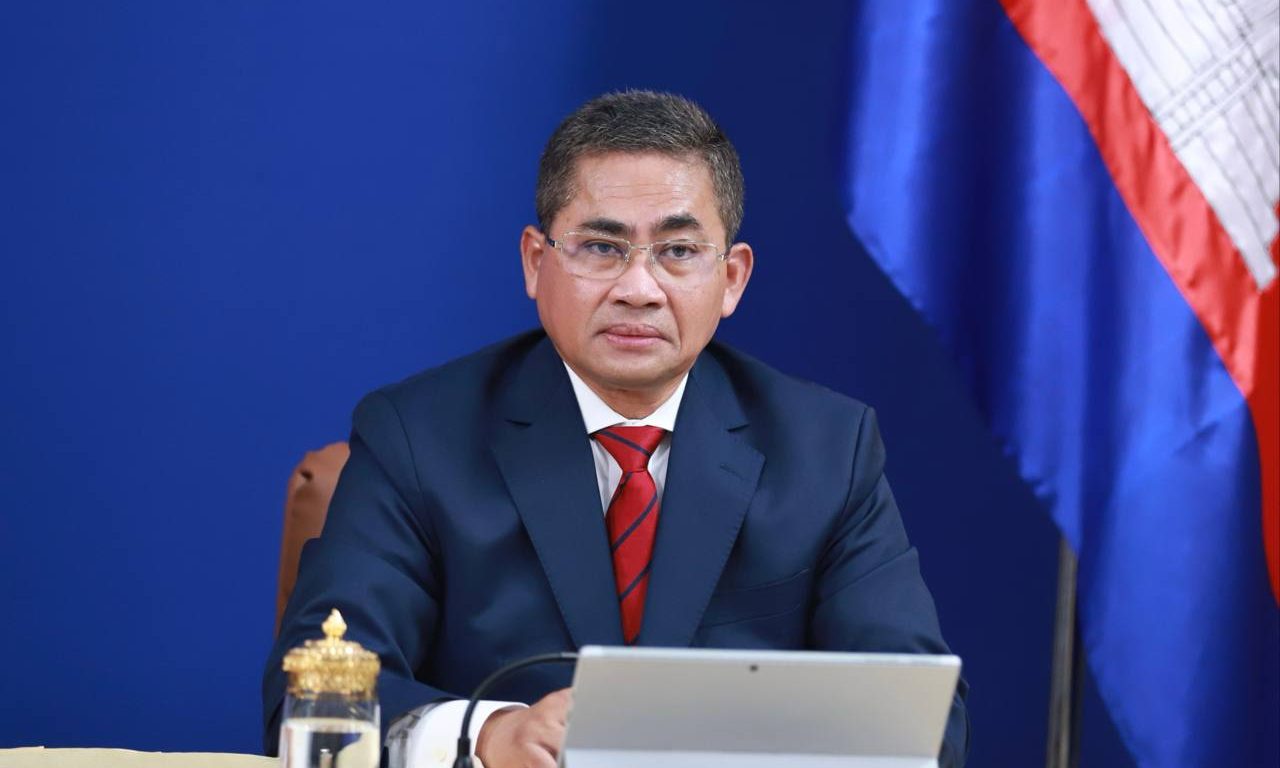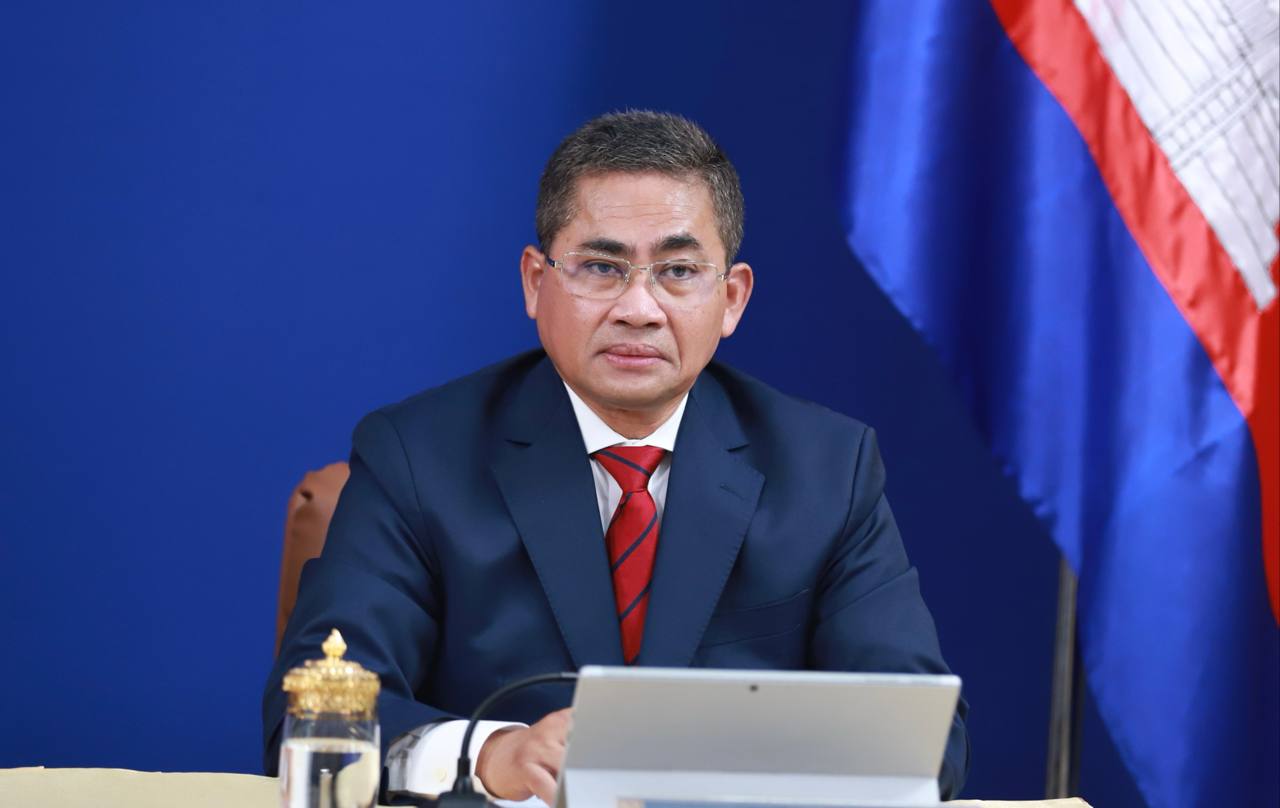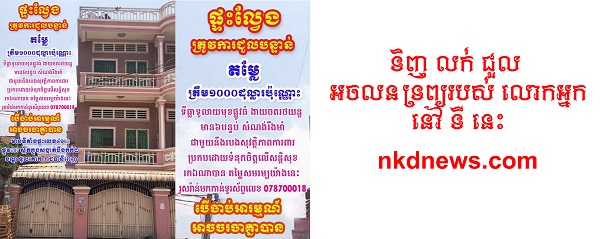Keynote Address by H.E. Nong Sakal , Spokesperson for the Ministry of Foreign Affairs and International Cooperation (MoFAIC):
Today I would like to brief you about some developments relating to the border situation within the framework of diplomatic and international measures being implemented during the ceasefire agreement achieved on 28 July 2025 between Cambodia and Thailand.
1. I would like to inform you about the event organized by the Ministry of Foreign Affairs, the briefing on the development of the situation along the Cambodian border.
(1). I would like to inform you that the briefing held yesterday at 3:30PM was chaired by His Excellency Deputy Prime Minister Prak Sokhon, Minister of Foreign Affairs and International Cooperation of Cambodia. The event was attended by a total of 77 participants from 64 institutions. Among them were representatives of foreign diplomatic missions accredited to Cambodia, with residents in Phnom Penh and non-residents. 14 missions are non-residents. Out of them, 10 are from Bangkok, 3 from Hanoi, and 1 from Beijing. In addition to that, 22 international organisations were also represented.
So now we come to the point that he had been briefed on the event yesterday. His Excellency Deputy Prime Minister Prak Sokhon has started the briefing by expressing that Cambodia speaks today as a country that has endured the scars of conflict and that knows too well the devastating cost of war. It is precisely because of this experience that we always choose peace over confrontation.
We believe firmly that disputes between nations must be settled through dialogue, international law and cooperation, not through force. From the very beginning of the crisis, Cambodia has worked tirelessly to de-escalate tensions and to restore calm. So this is the beginning of the point he has made.
Now come to the point on the fragility of the ceasefire. He had pointed out that Cambodia continued to observe some violations, including encroachment through the laying of barbed wire and the destruction of civilian infrastructure in and outside the conflict zone. Continued military activities such as the construction of new roads, bunkers and trenches in disputed areas as well as the continuing detention of the 18 Cambodian soldiers.
These actions undermine trust and make the ceasefire fragile. Therefore, the establishment of the interim observer team led by Malaysia and the prompt establishment of the AOT are essential. Cambodia has abided by the great ceasefire and the spirit of the MOU 2000.
(2). On the normalisation of bilateral relations. His Excellency Deputy Prime Minister underscored that Cambodia believes peace cannot be restored if border communities remain trapped in fear and displacement. That is why we have proposed practical steps to return relations to normalcy.
This should start with the discussion on reopening border checkpoints and facilitating the free flow of people and goods, cross-border crimes and humanitarian demining. On transnational crimes, he underlined that cooperation against transnational crime is a priority for Cambodia. Cambodia and Thailand have had good cooperation in fighting and preventing transnational crimes, including illicit drug and arms smuggling, human trafficking, cross-border smuggling of cultural artefacts and cybercrimes.
Regarding online scams, in July 2022, the Ministry of Post and Telecommunications of Cambodia signed an MOU with the Thai Ministry of Digital Economy and Society to strengthen cooperation to prevent and crack down on transnational technology crimes. Therefore, Cambodia reiterates its firm commitment to jointly address the cross-border crimes, including the newly emerging issues of online scams.
On humanitarian mine action, His Excellency Deputy Prime Minister Prak Sokhon also stated that Cambodia categorically rejects all accusations. I recall that minefields in Cambodia’s territory are remnants of past conflicts from the 1970s to the late 1990s that have not yet been cleared. Cambodia has transformed from a victim of landmines into a contributor to global mine action. We have also deployed over 10,000 deminers, including peacekeepers, to UN peacekeeping missions in 9 countries.
In this regard, Cambodia remains strongly committed to working with partners toward achieving a mine-free Cambodia by 2030. In this respect, he proposed that, as a step forward, Cambodia and Thailand explore priority border areas for humanitarian mine clearance. Particularly, areas where people are living and where clearance would directly serve socio-economic needs and protect civilian life on both sides. Cambodia and Thailand jointly identify priority border areas for humanitarian demining, particularly those with resident populations and areas where clearance directly serves socio-economic needs. I don’t want to go into detail because this is something concerning technical issues.
In conclusion to his briefing, His Excellency the Deputy Prime Minister underlined that Cambodia’s approach to resolving the border disputes is firmly based on international law and historical treaties and agreements long recognized by both Cambodia and Thailand. So those are the points that he had mentioned in the event of a diplomatic briefing yesterday.
2. Separately, I would like to briefly inform that the Ministry of Foreign Affairs and International Cooperation of Cambodia has organized a two-day field visit on 22 and 23 August 2025 for the Diplomatic Corps, UN agencies accredited to Cambodia and other international organizations to directly inspect border areas in Oddar Meanchey, Banteay Meanchey and Siem Reap provinces. The delegation will be led by His Excellency the Deputy Prime Minister Prak Sakhon, Minister of Foreign Affairs of Cambodia. We are expecting that the delegation will see and inspect various locations, such as to see the newly installed barbed wire and so on. This field trip visit is attended by 63 participants, including ambassadors, trade affairs representatives of UN agencies, international organizations, international NGOs, and both residents and non-residents.
More detailed information will be provided in the press release of the Ministry of Foreign Affairs in due course. So I conclude my briefing at this point. I thank you for your attention.












